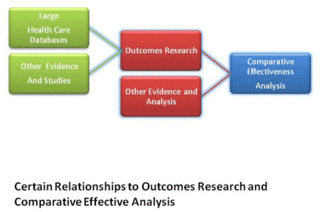Think of this as Volume 14, Number 9 of A-Clue.com, the online newsletter I've written since 1997. Enjoy.

That's the difference between the American system (or any proposal from any party to change it) and the systems in place everywhere else in the world.
There are many ways to say “no,” and in America we do it with dollars. We say “no” when the money runs out.
If you're in the middle class, if you can't afford the health care premiums you're offered, the system says “no” to you in every respect. If you're poor, however, or old, or you work for the government, or you have a generous employer, or you're rich, or you're a kid, or you once served your country, however, we say “yes” to you on just about everything.

That's a consistent message but it's one that even Republican constituencies don't swallow in practice. The party's greatest gains in the last year, according to all opinion polls, are among those 65 and older. Medicare recipients. “Keep the government's hands off my Medicare,” these people shout.
It's sort of funny.
But the system Democrats are offering right now is little better. Everyone gets a pony. Savings will appear by magic. If everyone gets into the pool, we can afford to cover everyone. We'll just do some adjustments around the edges.
It's a lie.

Where will the authority to say no come from?
The best place for it to come from is science, from data. The health IT revolution now underway is designed to collect that data. Get everyone's health records online and we can do a database sort to see what treatments are most cost-effective. Not just which are effective, but which deliver the best bang for the buck — in every case.
This is called “comparative effectiveness.” And it was the first thing tossed aside when the debate over health reform began. “You're gonna kill grandma,” cried the right, and liberals caved.
Here's the truth. Grandma is going to die some day. Get over it. So are you. So am I. Health care is not about immortality, it's about living as long as you can, as well as you can. It's about managing wellness, trying to cure sickness, giving you all the good days God may permit to you.

My grandfather died of kidney failure in 1927, at age 29. Today we'd put him on dialysis, maybe get him a new kidney, and I might have even met him. My father died of heart failure in 1999, at age 78. He had high cholesterol, hypertension, had his first heart attack in his mid-40s. Should have lost him in the 1980s, when his aorta split, but he had a great surgeon.
I was diagnosed with my father's cholesterol and hypertension in 2000, age 45. I got drugs and help with my lifestyle to get things under control. I have yet to have my first heart attack, but it's out there, waiting for me. With luck I'll beat my dad's record and see you in 2034.
Your mileage, of course, will vary. You have relatives who have gone, and you probably know how. We can't learn much if they died of violence, but you probably have a good handle on whether heart disease, cancer, or diabetes is likely in your future.
That's pretty primitive data. We can get lots more. We can take your genes and identify diseases you may be prone to, then start managing your wellness now to avoid them. This is called Predictive Health. We can track your doctor visits through an Electronic Health Record, add your exercise regimen to it, give you full control over the results in a Personal Health Record, and have a pretty good handle on your true condition.
You don't have to get sick until it's really your time to get sick. But it's going to cost some money. Wellness management costs money. Health clubs cost money. The coaching needed to create good habits costs money. It's called a “medical home” and it costs money.
It's money well spent. It's money that comes with a return in terms of a longer, more active life, in terms of real productivity and earning power. It comes back, in the near term, in lower health care costs.
But you will get sick. Or you'll fall, or get in a car accident. Maybe you'll get shot. It happens.
What we do now when you need care is we guess. Doctors do what they want to do. They have no reason not to do a lot. They figure it's cheaper to take pictures, do tests, and give only the name brand drugs their detail men sell than to face a malpractice suit later on. They figure defensive medicine is their best protection.

The problem with American medicine today is there is no incentive not to do everything. We don't just need someone to say “no,” but to say why. Something that will hold up in court. So that if the doctor or clinic or hospital is sued, they can say “I did what was called for” and be credible.
Every other country has this. It's a system of formularies, of standard medications and standard procedures, of standard treatments for standard conditions. To win approval in Europe a medicine or piece of equipment or operation has to not only work, it has to be cost-effective.
Treatment outside the standard is dealt with differently in different countries. Maybe you can buy insurance for it. Maybe you have to leave the country to go outside the standard. There's a limit to what the system will do for you, in Germany and the Netherlands and Canada. Grandmas die.
This should be the conservative position. We will go so far with everyone, but beyond that you're on your own. However we pay for the underlying system – whether through insurance or taxes – doesn't matter.
What matters is that someone says no, and we accept that as a final answer.
The limit – the point at which we say no – should be based on science, on data. Comparative effectiveness is about collecting that data and doing that analysis. These limits are what should be written into insurance contracts – not “lifetime caps” but a standard set of procedures. These limits should define what we do in Medicare, and Medicaid, and at the VA. Want to go beyond that? We can have a review board, but in general you get a supplemental policy. Or pay cash. Or find your God – that's what she's there for.
This is hard to write. It goes against the grain of the American ideal. It also threatens our leadership in medical technology and in drugs. Because standard formularies mean the supply of patients for your really expensive or outside-the-box treatment are going to be limited to those who can pay cash for it.

What I would like from the President right now is the courage to speak this truth, to treat us as adults, and to tell those who scared us off the path of comparative effectiveness because it may mean “they'll kill grandma,” suck on this.
Be a conservative, Mr. Obama. Be a real one. Not the phony kind we have now, the ones who drove up the debt and invaded whole countries on the whims of their leaders. The kind who knows the value and limits of a dollar. A grown-up.
I think we're ready to be treated like grown-ups.










